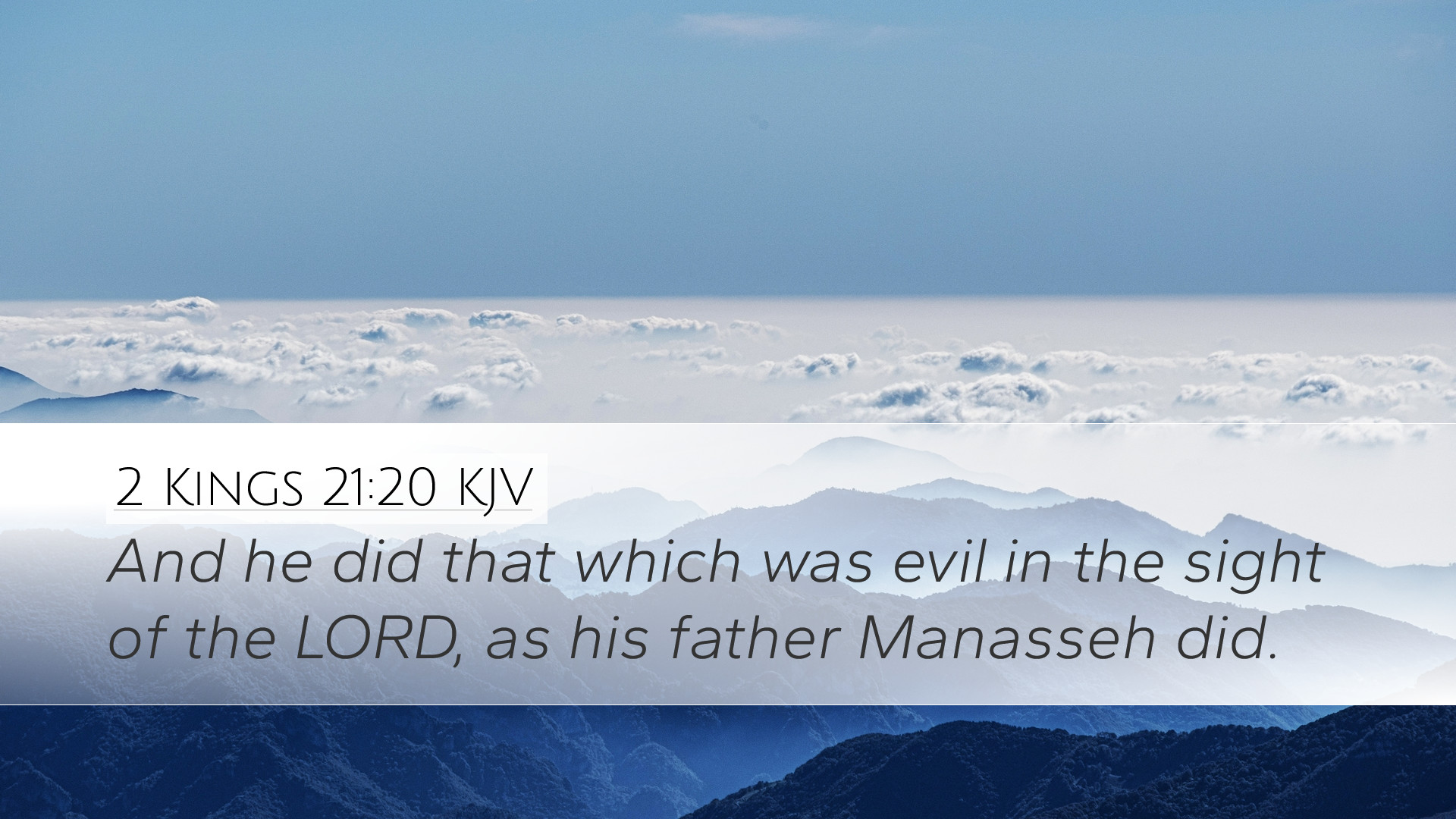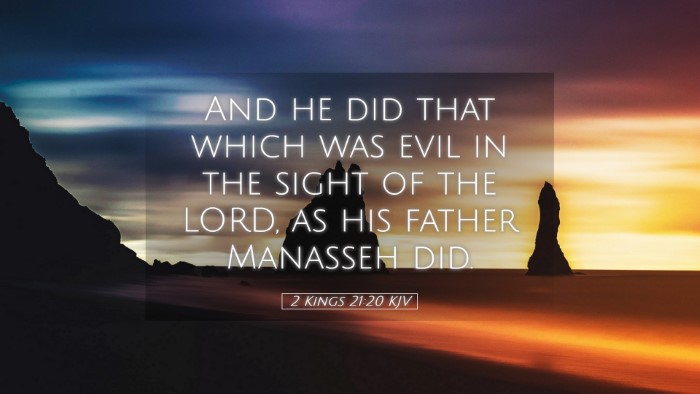Commentary on 2 Kings 21:20
The verse in question, 2 Kings 21:20, encapsulates a critical moment in the narrative of Judah's kings and serves as a reflection of the nation’s spiritual decline under the reign of Manasseh. The text provides insight into both the individual king’s character and the broader theological implications for the people of Israel.
Textual Context
In the book of 2 Kings, we encounter the history of the kings of Israel and Judah, providing details on their reigns, successes, and failures. Manasseh, as depicted in this verse, represents a significant low point in Judah's history through his idolatrous practices and turning away from Yahweh.
Analysis of 2 Kings 21:20
“So Manasseh slept with his fathers; and they buried him in his own house: and Amon his son reigned in his stead.” This verse marks the end of Manasseh's reign and highlights his transition from earthly life to death, a common theme in the narrative of kingship in the Old Testament. It emphasizes mortality—a salient reminder of the temporality of earthly power.
Death and Burial
The phrase "slept with his fathers" is a euphemism for death, indicating that he joined the lineage of those who have passed away. Public domain commentators such as Matthew Henry suggested that this phrase carries a notion of peace resting with those who were righteous, in contrast to the evil deeds of Manasseh that resulted in his judgment. He was buried "in his own house," indicating a level of disgrace due to his wickedness, as opposed to the honor typically accorded to godly kings.
The King's Legacy
Albert Barnes points out that Manasseh’s reign was marked by a significant departure from the faithfulness required of Israel's leaders. His idolatrous practices brought severe repercussions, as illustrated in the earlier verses of the chapter. The narrative reveals that his legacy was marred by his actions—summarized in his son Amon’s subsequent reign which was characterized by repeating the sinful patterns of his father.
Transition to Amon
The mention of Amon succeeding his father serves as a foreshadowing of further moral decline. Adam Clarke interprets this transition as indicative of a continuing cycle of unrighteous leadership. The text presents Amon not merely as a historical figure but as a representation of the generational consequences of sin. This sets the stage for the spiritual and national calamities that ensued in Judah.
Theological Implications
The death of Manasseh introduces several layers of theological reflection. First, it speaks to the idea of divine judgment. The accumulated sins of Manasseh, as recorded throughout the chapter, invoke consideration of God's justice and the seriousness of idolatry. Matthew Henry aptly notes that while Manasseh repented late in life, the lasting effects of his idolatrous policies could not be undone. This illustrates a profound truth about the nature of sin, its influence on society, and the often irrevocable consequences attached to it.
Lessons for Contemporary Readers
- Legacy of Leadership: Those in positions of influence must consider the weight of their actions and decisions on future generations.
- Repentance and Accountability: While personal repentance is vital, public and communal consequences can extend beyond the leader to the people.
- Idolatry’s Danger: The idolatrous behaviors adopted by Manasseh serve as a stark warning against any form of turning away from God, emphasizing the need for spiritual vigilance.
Conclusion
2 Kings 21:20 serves as a poignant reminder of the complexities of kingship, the burdens of leadership, the necessity of faithfulness to God, and the inevitable legacy that leaders leave behind. Through the voices of commentators like Henry, Barnes, and Clarke, we recognize the deep, interwoven texture of sin, judgment, and the need for faithful obedience to God, lessons that are particularly relevant for contemporary pastors, scholars, and students of the Bible.


